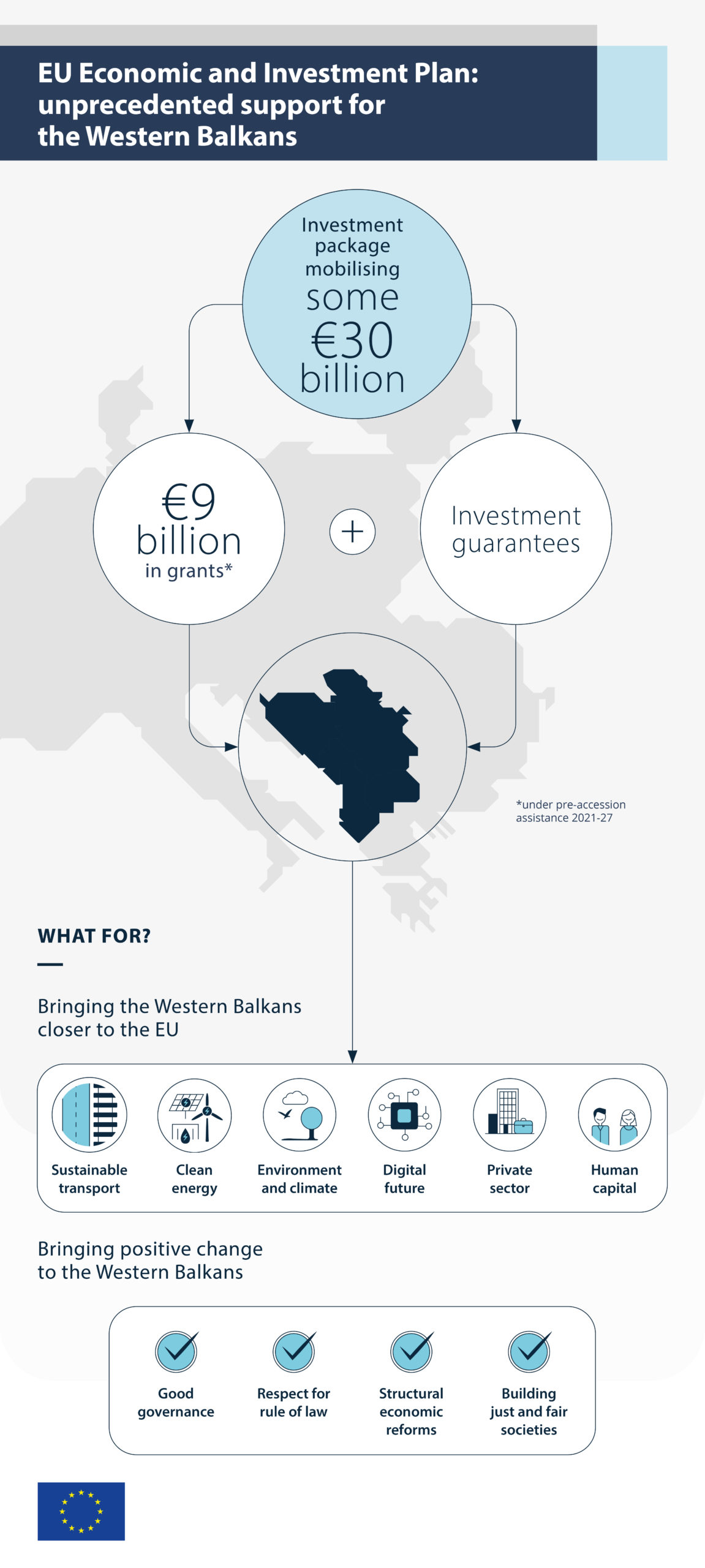PRESS RELEASE
The EU WB Summit presented another opportunity to reaffirm political commitment towards EU integration, and to set an action plan on how to deliver the recently signed Sofia Declaration. It is now critical that the governments convert their political declarations into concrete actions, setting clear targets for coal phase-out supported by realistic and timely policies and measures that will allow decarbonisation of the region by 2050.
Brussels, 6 Oct 2021 – Climate Action Network Europe welcomes signing of the Brdo Declaration at the European Union and Western Balkan leaders Summit, held today in Slovenia. It is a positive development towards partnership building, as well as an opportunity to call on the EU leaders and regional governments to increase their efforts to ensure tangible and realistic roadmap for the decarbonization of the region by 2050. As such, today’s announcement of future investments towards the WB region of some 30 billion EUR needs to be vigilantly mobilized for enhancing energy efficiency and fostering renewable energy sources such as solar and wind, interconnectivity, market coupling and liberalisation.
Our main concern comes from the lack of regional governments’ concrete actions since the signing of the Sofia Declaration on the Green Agenda for the Western Balkan, in November 2019. The Action Plan for the implementation of the Green Agenda which was endorsed at the summit, unfortunately, fails to deliver on its expectations and does not provide a well-defined set of actions, timelines, responsibilities and funding schemes that would ensure the decarbonization of the region by 2050 as a main goal of the Green Agenda. Simultaneously, unprecedented levels of air pollution, seriously damaging public health in the WB and EU, as well as hard hitting impacts of climate change, are calling for more urgent action than ever before.
In particular, actions to support ambitious 2030 climate change targets need to be defined. Also revision of the planned investments for gas infrastructure in the region is necessary in order to avoid being locked-in from one fossil fuel to another, as this could hamper the development of renewable energy infrastructure. Similarly, efforts to introduce carbon pricing policies, such as the EU Carbon Border Adjustment Mechanism (CBAM) and an emission trading system in the region, are essential tools that will ensure timely and effective coal phase-out.
Last but not least, carbon pricing policies should be also used to ensure social justice and economic well-being. Therefore, revenues from tools such as the CBAM should be directed towards assisting the region in enabling just transition and aiding most affected portions of the population, especially within the coal impacted communities and regions. This would complement efforts purported by the Energy Community Treaty and further incentivize the transition towards clean energy.
“The Brdo Declaration reinstates the convergence potential of the Green Agenda. If implemented vigilantly, with clear action plans to reach 2050 decarbonisation, in line with the Paris Agreement, and with close collaboration between the Western Balkans and the EU, it could foster needed climate and energy reforms in the region. This would set the path for a just transition from coal to renewables while also building closer institutional and political ties with the EU and aiding the accession process” said Kristina Naunova, Policy Officer for the Western Balkans at Climate Action Network (CAN) Europe.
ENDS
FOR MORE INFORMATION
Masha Perović, Southeast Europe Communications Coordinator, Climate Action Network (CAN) Europe masha /at/ caneurope.org , +381 (0) 63 8411 566
For PR in Serbian see attached file below




